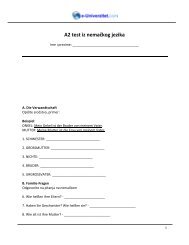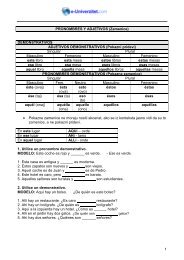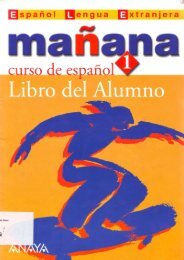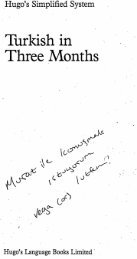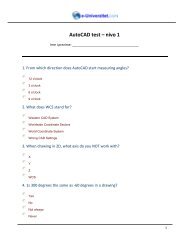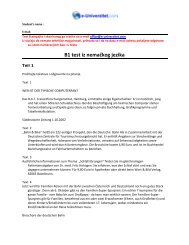Collins Paul Noble French booklet.pdf - Centar za edukaciju i ...
Collins Paul Noble French booklet.pdf - Centar za edukaciju i ...
Collins Paul Noble French booklet.pdf - Centar za edukaciju i ...
You also want an ePaper? Increase the reach of your titles
YUMPU automatically turns print PDFs into web optimized ePapers that Google loves.
The past (using “have”)<br />
I Je<br />
have ai<br />
I have J’ai<br />
NOTE! Notice that, as there would be two vowels touching in Je ai,<br />
it contracts instead to J’ai – this is a common occurrence in <strong>French</strong> and one that you<br />
will quickly get used to.<br />
visited visité<br />
the Louvre le Louvre<br />
I have visited the Louvre. J’ai visité le Louvre.<br />
the park le parc<br />
I have visited the park. J’ai visité le parc.<br />
prepared préparé<br />
I have prepared J’ai préparé<br />
the coffee le café<br />
I have prepared the coffee. J’ai préparé le café.<br />
for you pour vous<br />
I have prepared the coffee for you. J’ai préparé le café pour vous.<br />
English words which end in “ion” came into English through <strong>French</strong>. There are 1250 of<br />
them. If you know them in English, then you can use them in <strong>French</strong>.<br />
reservation réservation<br />
invitation invitation<br />
decoration décoration<br />
If you take an “ion” word, such as préparation, cut off the “ation” on the end and<br />
add a café “é” in its place, you will have a word like préparé, which means prepared.<br />
This means you can now say: I have prepared, I have visited, I have decorated etc. Try<br />
the example below:<br />
preparation préparation<br />
11



